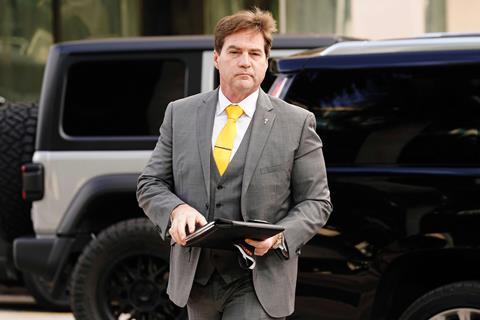A litigant's statement that it has 'good prospects' of 'soon' gaining access to bitcoins worth £13.7m is not sufficient to meet a request for security against adverse costs, a judge has ruled. The judgment is the latest development in a wave of litigation to have arisen over the claim of Australian computer scientist Dr Craig Wright to be the creator of Bitcoin, the trillion-dollar cryptocurrency, in 2008.
In Tulip Trading Ltd v Bitcoin Association for BSV, Master Clark was ruling in an application for costs security in a jurisdiction challenge brought by 15 overseas defendants in a High Court action brought by a company owned by Wright, who is resident in England.
Wright claims that the defendants - all developers of cryptocurrrency systems - owe a duty to rewrite software to enable him to recover private encryption keys to coins worth $4.5 billion (£3.29bn) which he says have been deleted after presumably being copied by hackers. The defendants deny they have any such duty. All but one are challenging a court order granting permission for the English claims to be served out of jurisdiction. They are seeking security for the costs of these proceedings claiming they have reason to believe that Tulip Trading will be unable to pay if ordered to do so.

Seeking security on the ground of impecuniosity, the court heard that Tulip Trading is a holding company for the bitcoins at the centre of the dispute, that it has no bank account and does not file accounts or tax returns.
In his evidence, Wright stated that he had strong prospects of soon being able to regain access to some of the bitcoins worth £13.7m.
The judge ruled that this was not sufficient as the ownership of the digital coins is at issue in the claim and that the security is required now.
The judge also rejected an argument that Wright's inability to access at least some of the contested bitcoins is a result of the defendant's actions. An offer by Wright to transfer some of the bitcoins to a trusted third party pending the trial's outcome would require the defendants to write new software. Even if this could be achieved, the judge observed, 'there is no legal basis... for requirig a defendant to expend his own time and money in order himself to produce his costs security.'
The quantum of the security will be determined at a further hearing.
A spokesperson for international firm Ontier, a blockchain specialist which is acting for Wright, said that Tulip Trading Ltd will comply with any order made.





























7 Readers' comments